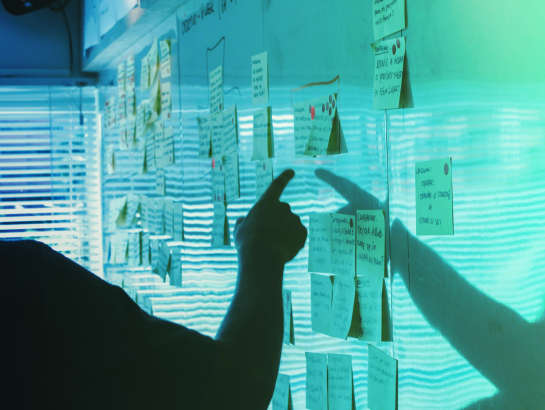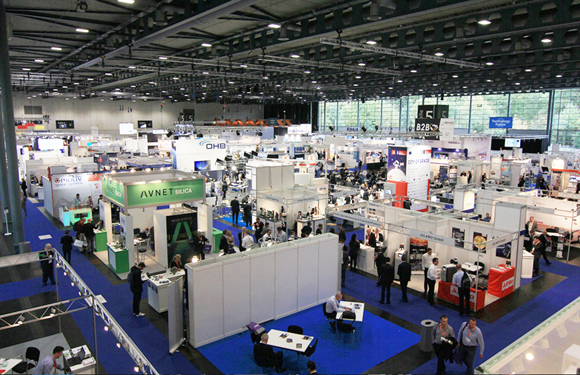On a special episode of The Satellite & NewSpace Matters Podcast, Jeffrey Hill, the Executive Chairman of the SATELLITE conference from Access Intelligence, joined us to discuss the latest event in March. He shared his insights from fifteen years of working for the conference, as well as his insights on the future of the space industry and its resulting impact on the conference.
How did the satellite industry look when you first started working at the SATELLITE conference in 2009?
Back then it was small enough that everybody knew each other. It was a very intimate industry where everybody worked for everybody at one point in time. It was around 10,000 attendees at the time, so it was still big, but most of them were from the broadcast industry because we had just as many satellite operators as launchers because they would sell to the operators. There were very few young people and very few women. Everybody had an engineering background, so everyone used ‘engineering speak’, even if they weren’t in engineering now because they were executives or in legal or finance.
The conference used to be all about selling products and discussing the industry’s next engineering transition. Some people, like SpaceX, were trying to disrupt the industry, but the idea of somebody coming in and doing something faster than usual was met with suspicion. People thought these new ventures would fail because nothing had changed in the last ten years. Everybody was about to retire, so who was going to take over? Change needed to happen whether people were ready or not.
What solutions are currently the driving force of the conference, and how are they shaping the show?
There are a few different ones for a few different groups of people. This year, the main conversation is this convergence between the cellular terrestrial world and satellite telecommunications, with the advancement of 5G as the standard. We have become a general telecommunication show in the sense that people from the terrestrial world have to come and learn about how satellites work and how the satellite business model works. They don’t know how satellite operators make money, so we have an educational component where we’re meeting this new group of people.

The second most popular conversation is about the fact that satellites’ data analytics and imagery are now so commonly used in the news to inform people about current events. Satellite data is now a crucial element of any news story. It brings proof right to the public. You’ll hear a lot about satellite intelligence data gathering. I imagine we will also hear a lot about the recent news story about Russia possibly bringing nuclear weapons into space and violating the Space Treaty of 1967. I imagine that will be a unifying discussion because everybody in every session dealing with the space segment will have to talk about protecting their assets and infrastructure.
We’re not just talking about telecommunications on the Earth; now we’re talking about the moon and getting communications systems established there. If we were to successfully land on the moon, it would take us 15 minutes to know if they did.
How do you see both the industry and therefore the SATELLITE conference developing over the next 10 years?
I think the industry is going to be much more focused on infrastructure security as space becomes more competitive on a global economic scale. I think we’re going to see a lot more discussion about policy because the industry needs guidance. The private industry can move really fast, but without directing policy or some agreement with the major space powers about what is or is not acceptable in space, we cannot approach space real estate. We have to forget about certain boundaries and work together. There’s going to be a complete shift in policy that’s going to require private industry and government to take the lead.
I also think you’ll see a lot more discussion on the future of propulsion and rocket technology. We’ve really reached the limit of what we can do with fuel-based rockets, which are just going to get bigger and bigger and bigger. To get all our stuff in space, we’re going to have to launch more rockets, but we don’t want to destroy our environment while we’re trying to get into space. We have to look at some of these alternatives.
I think we’re going to see a lot more diversity in terms of the types of people who come to the SATELLITE conference from outside of the space industry. There’s going to be a focus on education and demystifying space, making it seem more normal than it is. In reality, space is a super dangerous, inaccessible place to do anything. We’re going to have software engineers coming from other industries, and they’re going to want to know how their systems will operate on a space station. The space industry is going to have to communicate with them and explain to them why they should be doing their research in space.
To hear more from Jeffrey, tune into Episode 34 of The Satellite & NewSpace Matters Podcast here.
We sit down regularly with some of the biggest names in our industry, we dedicate our podcast to the stories of leaders in the technologies industries that bring us closer together. Follow the link here to see some of our latest episodes and don’t forget to subscribe.


